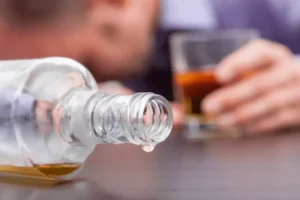
Nicoletta Lanese is the health channel editor at Live Science and was previously a news editor and staff writer at the site. She holds a graduate certificate in science communication from UC Santa Cruz and degrees in neuroscience and dance from the University of Florida. Her work has appeared in The Scientist, Science News, the Mercury News, Mongabay and Stanford Medicine Magazine, among other outlets. Based in NYC, she also remains heavily involved in dance and performs in local choreographers’ work. “While probiotics are routinely prescribed among ill patients with various gastrointestinal symptoms and conditions,” the authors wrote, “rare yet severe adverse events may occur, as exemplified in this report.”

Alcohol Detox Medications: All You Need To Know
- There is a widespread belief that alcohol has a thinning effect on the blood.
- Likewise, the USDA database reports that there is essentially no Vitamin K in liquid egg substitute like Egg Beaters.
- Consuming alcohol can potentially interfere with the effectiveness of Eliquis.
- Other medications in this category include Xarelto (rivaroxaban), Savaysa (edoxaban), and Arixtra (fondaparinux).
While blood thinners can be lifesaving medications, they carry a risk of bleeding. This article discusses the types of blood thinners, their medical uses, and side effects. These work by blocking a protein that makes your platelets stick together and to the walls of your blood vessels, forming clots. They’re often prescribed to people at risk of having future blood clots, rather than to treat existing ones.
- This can disrupt the heart’s rhythm, potentially causing palpitations.
- This article cuts right to the chase, detailing the risks and clear guidelines for safely managing alcohol and Eliquis intake.
- A 2013 study of almost 60,000 people found no difference in the risk of blood clots between wine or beer drinkers.
- Alcohol has been found to increase platelet aggregation, meaning that platelets are more likely to stick together and form clots.
Does Alcohol Affect Deep Vein Thrombosis?
The acute effects of alcohol on the myocardium include a weakening of the heart’s ability to contract (negative inotropic effect). When alcohol is consumed, it enters the bloodstream and begins to exert its effects on the body. One immediate effect of alcohol on blood is its ability to dilate blood vessels. This causes a temporary expansion of the blood vessels, leading to a feeling of warmth and potentially causing the skin to appear flushed.
Why people should not drink alcohol before surgery
The warning includes risks such as epidural or spinal hematoma (which could result in paralysis). It recommends not stopping Eliquis before completing therapy, and avoiding anti-inflammatory drugs, other blood thinners, and platelet inhibitors to decrease risk. Below are the answers to some common questions about drinking alcohol before surgery. People who have any level of alcohol as a blood thinner alcohol dependence should ideally try to abstain from alcohol for 6–8 weeks before surgery to decrease the risks of potentially fatal complications. Long-term alcohol use can affect the functioning of the liver, which could mean doctors need to adjust the dose of anesthesia they would typically use. This could affect the efficacy and safety of anesthesia during surgery.
Increased Risk of Gastric Ulcers and GI Bleeding with Chronic Alcohol Usage

Blood thinners are crucial in preventing and treating various cardiovascular and circulatory conditions. There are two main types of medications — anticoagulants and antiplatelets — a doctor may recommend depending on the reason for needing them. Heads up that some of these “don’ts” don’t apply if you’re on one of the newer blood thinners, like Rivaroxaban (Xarelto®) or Apixaban (Eliquis®). So, it’s important to check with your healthcare provider to make sure you’re taking the appropriate precautions.
Potential Biologic MechanismsUnderlying Alcohol-Induced BP Effects
The combination of alcohol and Eliquis can significantly increase your risk of bleeding. According to a study indicated by the American Blood Clot Association, the alcohol content in 1 or 2 drinks may reduce blood clotting time and amplify the anticoagulant effect of Eliquis. This effect can be quite concerning, especially when considering the prolonged presence of Eliquis in the body due to alcohol consumption. Alcohol is itself a blood thinner, and it also increases the time your blood thinner medication stays in your system.
Other times, an immediate trip to the ER or a call to 911 is imperative, says Dr. Alvarado, because some bleeding episodes can be life-threatening. Dave Cundiff, MD, MPH is an experienced leader in the field of Substance Use Disorder treatment. He works with patients suffering from Substance Use Disorder to evaluate their medication needs and prescribe treatments accordingly.


They also had lower levels of circulating inflammatory markers, such as C-terminal proendothelin-1 and pentraxin-3 (Cosmi et al. 2015). The way in which alcohol consumption has been measured and categorized varies, sometimes making it challenging to compare data among studies. More studies today report alcohol consumption in terms of either “drinks” or grams/units of ethanol per day or week, and alcohol consumption is measured by self-report.

Newer oral anticoagulants
- Dr. Harb moved to New York City, choosing a career path in academic medicine as an assistant professor at the Donald and Barbara Zucker School of Medicine at Hofstra/Northwell.
- This article looks at why people need to avoid alcohol before surgery, what happens if they consume alcohol before surgery, and how long before surgery a person needs to stop consuming alcohol.
If you take an anticoagulant like warfarin, you’ll need regular blood tests so your doctor can adjust your levels if needed. Ask them about other steps you should take to stay safe while you’re on this medication. You should be very careful when you’re taking blood thinners and doing things that could cause any type of injury.
Side Effects
Mechanisms related to the positive and adverse effects of alcohol on cardiovascular conditions, such as coronary heart disease and stroke as well as cardiomyopathy. Different mechanisms may be in effect depending on the dose, duration, and pattern of alcohol consumption. Alcohol consumption can also impair the body’s natural healing mechanisms. When injured, the body relies on a complex process involving blood clotting and tissue regeneration to heal wounds. Excessive alcohol consumption can interfere with this process, slowing down healing and prolonging recovery time.